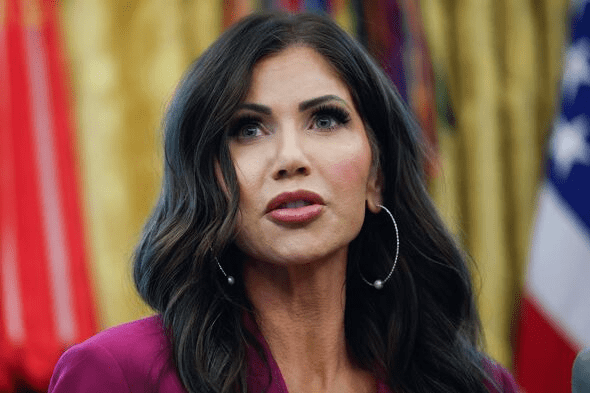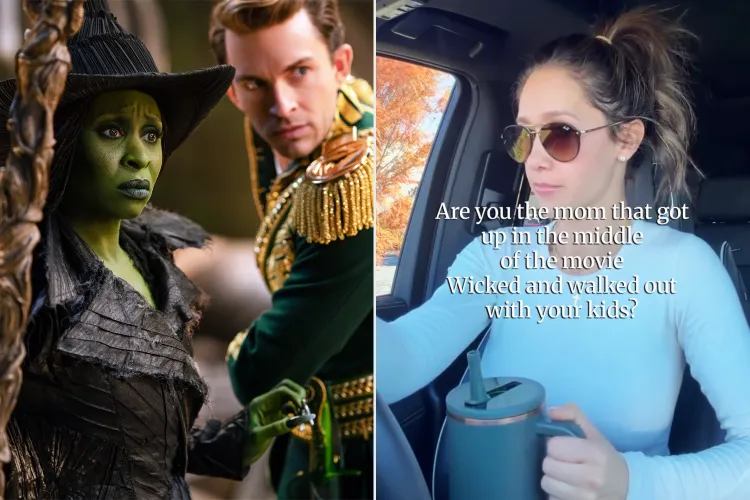Governor Kristi Noem slams country star Zach Bryan over new song criticizing ICE raids as the singer defends his message of love for America
A heated culture clash has erupted between country music star Zach Bryan and South Dakota Governor Kristi Noem, after the Republican leader took aim at Bryan’s latest song, which critics claim paints Immigration and Customs Enforcement (ICE) in a negative light. The track, which Bryan insists is about “how much I love this country,” has quickly become a lightning rod for debate — dividing fans, sparking political commentary, and once again blurring the line between music and message in American entertainment.

The controversy began when Kristi Noem, a rising conservative figure and rumored future contender for national office, blasted the song publicly, accusing Bryan of disrespecting the men and women who serve on the front lines of national security. Noem’s reaction came amid growing conversations around immigration enforcement and border policy, issues that remain central to the 2025 political landscape. Her statement, which spread rapidly across social media, described Bryan’s lyrics as “dangerously out of touch with reality” and “an insult to the thousands of officers who put their lives on the line for this nation.”

Zach Bryan, however, was quick to respond, insisting that his intentions had been misinterpreted. Known for his honest songwriting and deep patriotism, Bryan told fans that the song was “not about attacking anyone, but about expressing frustration with division and fear.” His response came with a message of unity, explaining that the song’s lyrics — which some listeners read as anti-ICE — were meant to highlight the loss of compassion in national politics, not to undermine law enforcement. “I wrote this because I love this country,” Bryan explained. “I’ve met people who’ve suffered and others who serve, and I wanted to put that tension into words.”

Bryan’s fans have largely rallied behind him, arguing that his storytelling often deals with American life’s complexities — love for country, empathy for its people, and anger at injustice. Many pointed out that his track record shows deep respect for the U.S. military and working-class Americans, and that reducing his music to political talking points misses the emotion behind it. Still, some conservative audiences echoed Noem’s criticism, arguing that even if Bryan’s intent wasn’t malicious, his words could still be used to fuel anti-law-enforcement sentiment.
The exchange between Noem and Bryan has become a larger reflection of America’s ongoing cultural divide — one where art, politics, and patriotism constantly collide. For Noem, who has built a national profile by defending conservative values and law enforcement, calling out a popular artist fits neatly within her brand of tough, unapologetic politics. For Bryan, whose fan base crosses political lines, the challenge is walking the thin line between authenticity and controversy — staying true to his heart while not alienating millions who interpret his message differently.

The debate highlights a broader question about whether artists in today’s America can express moral or emotional conflict without being pulled into political firestorms. Country music has long been a genre rooted in storytelling, emotion, and love for the homeland — but in recent years, it has also become a battleground for culture wars. From small-town pride to border policy, from veterans to civil rights, country artists are increasingly expected to pick sides, whether they want to or not.

As of now, Zach Bryan seems determined not to back down or apologize, instead standing firm in his belief that his song celebrates the nation’s spirit even while confronting its flaws. Kristi Noem, equally steadfast, continues to defend ICE and the broader principle of respecting law enforcement. Both figures, in their own way, represent very different visions of what patriotism looks like in modern America — one defined by empathy and honesty, the other by order and loyalty.

Whether the controversy fades or fuels further headlines, one thing is clear: Zach Bryan’s music once again proves how powerful art can be in stirring emotions and sparking national conversations. And for a generation caught between love for country and frustration with its divisions, that conversation — as uncomfortable as it may be — feels more American than ever.



